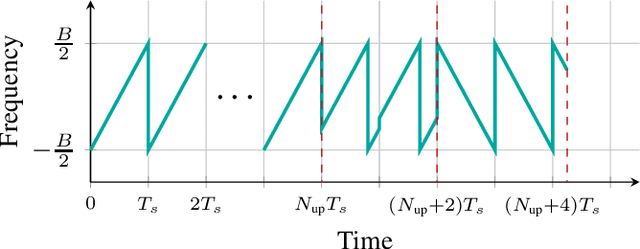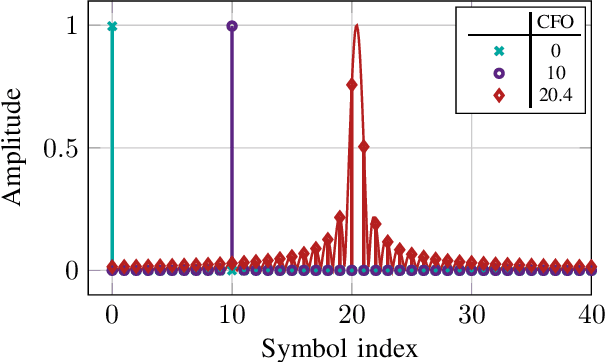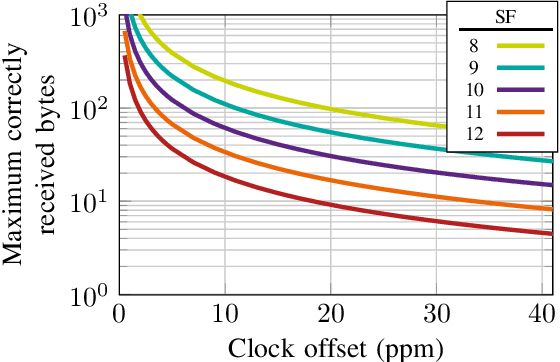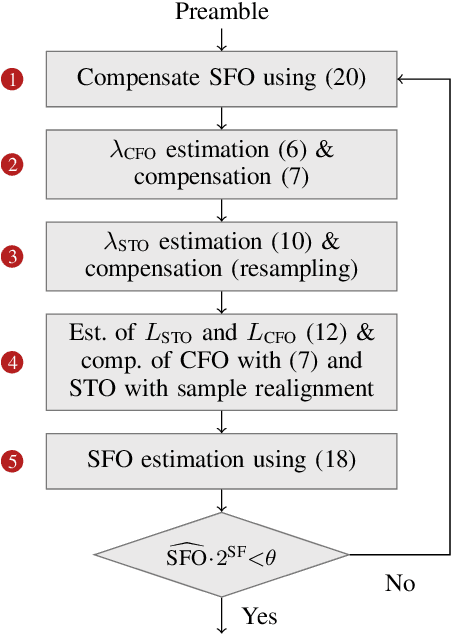Joachim Tapparel
Dataset and UAV Propagation Channel Modeling for LoRa in the 860 MHz ISM Band
Dec 17, 2025



Abstract:LoRa is one of the most widely used low-power wide-area network technology for the Internet of Things. To achieve long-range communication with low power consumption at a low cost, LoRa uses a chirp spread spectrum modulation and transmits in the sub-GHz unlicensed industrial, scientific, and medical (ISM) frequency bands. Due to the rapid densification of IoT networks, it is crucial to obtain tailored channel models to evaluate the performance of LoRa networks. While channel models for cellular technologies have been investigated extensively, specific characteristics of LoRa transmissions operating at long range with a rather small (~ 250kHz) bandwidth require dedicated measurement campaigns and modeling efforts. In this work, we leverage an SDR-based testbed to gather and publish a dataset of LoRa frames transmitted in a campus environment. The dataset includes IQ samples of the received frames at multiple locations and allows for the evaluation of channel variations with high time resolution. Using the gathered data, we derive empirical propagation channel models for LoRa that include receiver correlation over distance for three scenarios: unmanned aerial vehicle (UAV) line-of-sight (LoS), UAV non-LoS, and pedestrian non-LoS. Furthermore, the dataset is annotated with synchronization information, enabling the evaluation of receiver algorithms using experimental data.
LoRa Fine Synchronization with Two-Pass Time and Frequency Offset Estimation
Feb 12, 2025



Abstract:LoRa is currently one of the most widely used low-power wide-area network (LPWAN) technologies. The physical layer leverages a chirp spread spectrum modulation to achieve long-range communication with low power consumption. Synchronization at long distances is a challenging task as the spread signal can lie multiple orders of magnitude below the thermal noise floor. Multiple research works have proposed synchronization algorithms for LoRa under different hardware impairments. However, the impact of sampling frequency offset (SFO) has mostly either been ignored or tracked only during the data phase, but it often harms synchronization. In this work, we extend existing synchronization algorithms for LoRa to estimate and compensate SFO already in the preamble and show that this early compensation has a critical impact on the estimation of other impairments such as carrier frequency offset and sampling time offset. Therefore it is critical to recover long-range signals.
 Add to Chrome
Add to Chrome Add to Firefox
Add to Firefox Add to Edge
Add to Edge